|
Books Should Be Free Loyal Books Free Public Domain Audiobooks & eBook Downloads |
|
|
Books Should Be Free Loyal Books Free Public Domain Audiobooks & eBook Downloads |
|
Comedies |
|---|
Book type:
Sort by:
View by:
|
By: Jane Austen (1775-1817) | |
|---|---|
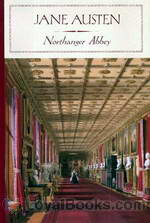 Northanger Abbey
Northanger Abbey
Jane Austen’s Northanger Abbey is a book about the life of Catherine Morland and her romantic relationships. The novel is divided into two parts; the first part begins with Catherine’s visit to Bath and her relationship with Henry Tilney and the other people she met there, and the second part starts with the arrival of Frederick Tilney and her visit to Northanger Abbey. This book alongside Pride and Prejudice and Sense and Sensibility is considered one of the major works of Jane Austen. The novel had undergone many revisions before its publication and it was even originally titled “Catherine... | |
By: Mark Twain (1835-1910) | |
|---|---|
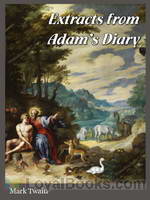 Extracts from Adam's Diary
Extracts from Adam's Diary
Get the true story of Adam and Eve, straight from the source. This humorous text is a day-to-day account of Adam’s life from happiness in the “GARDEN-OF-EDEN” to their fall from grace and the events thereafter. Learn how Eve caught the infant Cain, and Adam takes some time to learn exactly what it is. | |
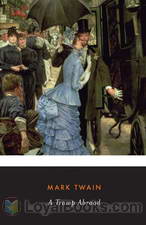 A Tramp Abroad
A Tramp Abroad
A Tramp Abroad is a work of non-fiction travel literature by American author Mark Twain, published in 1880. The book details a journey by the author, with his friend Harris (a character created for the book, and based on his closest friend, Joseph Twichell), through central and southern Europe. While the stated goal of the journey is to walk most of the way, the men find themselves using other forms of transport as they traverse the continent. The book is often thought to be an unofficial sequel to an earlier Twain travel book,The Innocents Abroad... | |
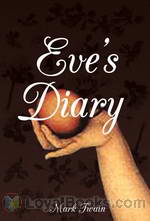 Eve's Diary
Eve's Diary
Eve's Diary is a comic short story by Mark Twain. It was first published in the 1905 Christmas issue of the magazine Harper's Bazaar, and in book format in June 1906 by Harper and Brothers publishing house. It is written in the style of a diary kept by the first woman in the Judeao-Christian creation myth, Eve, and is claimed to be "translated from the original MS." The "plot" of this novel is the first-person account of Eve from her creation up to her burial by, her mate, Adam, including meeting and getting to know Adam, and exploring the world around her, Eden... | |
 Mark Twain's (Burlesque) Autobiography and First Romance
Mark Twain's (Burlesque) Autobiography and First Romance
Mark Twain's (Burlesque) Autobiography and First Romance, a short volume, published by Sheldon & Co., NY in 1871, is Mark Twain's third book. It consists of two stories - First Romance, which had originally appeared in The Express in 1870, and A Burlesque Autobiography (bearing no relationship to Twain's actual life), which first appeared in Twain's Memoranda contributions to the Galaxy. Rather, the content consists of a few short stories of fictional characters who are supposedly part of Twain's lineage... | |
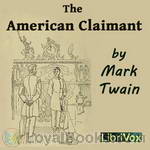 The American Claimant
The American Claimant
The American Claimant is an 1892 novel by American humorist and writer Mark Twain. The story focuses on the class differences and expectations of monarchic, hierarchical Britain and the upstart, "all men are created equal" America. Twain wrote the novel with the help of phonographic dictation, the first author (according to Twain himself) to do so. This was also (according to Twain) an attempt to write a book without mention of the weather, the first of its kind in fictitious literature. Indeed, all the weather is contained in an appendix, at the back of the book, which the reader is encouraged to turn to from time to time. | |
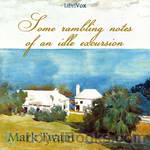 Some Rambling Notes of an Idle Excursion
Some Rambling Notes of an Idle Excursion
Written for the Atlantic magazine in 1877, this is a collection of stories about a trip Mark Twain made with some friends to Bermuda. It contains fascinating descriptions of Bermuda the island, and some of its people as well as an explanation of why Bermuda's houses are "so white". | |
By: William Shakespeare (1564-1616) | |
|---|---|
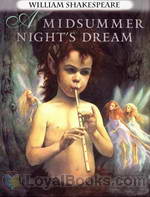 A Midsummer Night's Dream
A Midsummer Night's Dream
Summer nights, romance, music, comedy, pairs of lovers who have yet to confess their feelings to each other, comedy and more than a touch of magic are all woven into one of Shakespeare's most delightful and ethereal creations – A Midsummer Night's Dream. The plot is as light and enchanting as the settings themselves. The Duke of Athens is busy with preparations for his forthcoming wedding to Hippolyta the Amazonian Queen. In the midst of this, Egeus, an Athenian aristocrat marches in, flanked by his lovely daughter Hermia and her two suitors, Lysander and Demetrius... | |
 As You Like It
As You Like It
In a tiny French dukedom, a younger brother usurps his elder brother's throne. Duke Senior is banished to the Forest of Arden along with his faithful retainers, leaving his lovely daughter Rosalind behind to serve as a companion for the usurper's daughter, Celia. However, the outspoken Rosalind soon earns her uncle's wrath and is also condemned to exile. The two cousins decide to flee together and join Duke Senior in the forest. Meanwhile, a young nobleman, Orlando is thrown out of his home by his cruel older brother Oliver... | |
 The Merchant of Venice
The Merchant of Venice
William Shakespeare's The Merchant of Venice was probably written between 1596 and 1598, and was printed with the comedies in the First Folio of 1623. Bassanio, an impoverished gentleman, uses the credit of his friend, the merchant Antonio, to borrow money from a wealthy Jew, Shylock. Antonio pledges to pay Shylock a pound of flesh if he defaults on the loan, which Bassanio will use to woo a rich heiress, Portia. A subplot concerns the elopement of Shylock's daughter Jessica with a Christian, Bassanio's friend Lorenzo... | |
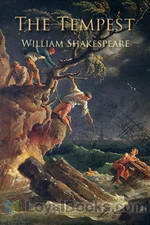 The Tempest
The Tempest
Banished from his own lands by a usurping brother, Prospero and his daughter Miranda have been living on a deserted island for years, until fate brings the brother within the range of Prospero's powers. Will he seek revenge, or reconcilement? | |
 Much Ado About Nothing
Much Ado About Nothing
Written around the middle of his career, Much Ado About Nothing is one of Shakespeare's great festive comedies. The men are back from the war, and everyone is ready for romance. The dashing young Claudio falls for Hero, the daughter of Leonato, governor of Messina, and his friend Don Pedro helps him secure her affection. These youthful lovers are contrasted with the more experienced (and more cynical) Benedick and Beatrice, who have to be tricked into falling in love. Don Pedro's bastard brother, Don John, provides the intrigue, and the dimwitted constable Dogberry provides the laughs. | |
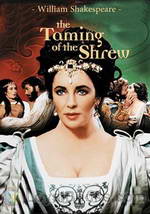 The Taming of the Shrew
The Taming of the Shrew
The Taming of the Shrew is one of Shakespeare's earliest comedies, and was inspired by classical Roman comedy and the Italian commedia dell'arte. Baptista Minola, a rich gentleman of Padua, has two daughters: Katherina, renowned for her sharp tongue, and Bianca, who is sought after by multiple suitors. Baptista decides that Bianca cannot marry until her elder sister finds a husband. Enter Petruchio, who has come to "wive it wealthily in Padua," and who is convinced by Bianca's suitors to woo Katherina. The play ultimately poses the question of who is the bigger shrew: Kate or Petruchio. The subplot involves the subterfuge employed by Lucentio to woo the lovely Bianca. | |
 All's Well That Ends Well
All's Well That Ends Well
Despite its optimistic title, Shakespeare's All's Well That Ends Well has often been considered a "problem play." Ostensibly a comedy, the play also has fairy tale elements, as it focuses on Helena, a virtuous orphan, who loves Bertram, the haughty son of her protectress, the Countess of Rousillon. When Bertram, desperate for adventure, leaves Rousillon to serve in the King's army, Helena pursues him. | |
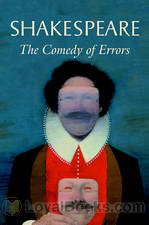 The Comedy of Errors
The Comedy of Errors
The Comedy of Errors is one of William Shakespeare's earliest plays, believed to have been written between 1592 and 1594. It is his shortest and one of his most farcical comedies, with a major part of the humour coming from slapstick and mistaken identity, in addition to puns and word play. The Comedy of Errors tells the story of two sets of identical twins that were accidentally separated at birth. Antipholus of Syracuse and his servant, Dromio of Syracuse, arrive in Ephesus, which turns out to be the home of their twin brothers, Antipholus of Ephesus and his servant, Dromio of Ephesus... | |
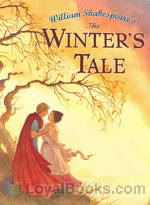 The Winter's Tale
The Winter's Tale
Mad with jealousy, King Leontes of Sicilia orders his best friend Polixenes killed, his child abandoned, and his wife put on trial for adultery. Sixteen years later, Perdita, raised as a shepherd's daughter, falls in love with Polixenes's royal son and returns to her father's kingdom. | |
 Measure For Measure
Measure For Measure
Generally considered one of Shakespeare's problem plays, Measure for Measure examines the ideas of sin and justice. Duke Vincentio turns Vienna's rule over to the corrupt Angelo, who sentences Claudio to death for having impregnated a woman before marriage. His sister Isabella, a novice nun, pleads for her brother's life, only to be told that he will be spared if she agrees to relinquish her virginity to Angelo. | |
 Love's Labour's Lost
Love's Labour's Lost
Love's Labour's Lost is an early comedy by William Shakespeare. Ferdinand, the King of Navarre, and his three friends take a vow of study and seclusion for three years, during which they are forbidden to see or speak to women. Their vows are immediately tested by the arrival of the Pricess of France and her three ladies to the King's court. | |
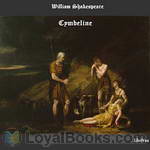 Cymbeline
Cymbeline
Cymbeline is one of Shakespeare's late romances, which (like The Tempest and The Winter's Tale) combines comedy and tragedy. Imogen, the daughter of King Cymbeline of Britain, angers her father when she marries Posthumus, a worthy but penniless gentleman. The King banishes Posthumus, who goes to Rome, where he falls prey to the machinations of Iachimo, who tries to convince him that Imogen will be unfaithful. Meanwhile, the Queen (Imogen's stepmother) plots against her stepdaughter by trying to plan a match between Imogen and her worthless son Cloten. | |
 The Two Gentlemen of Verona
The Two Gentlemen of Verona
The Two Gentlemen of Verona is the earliest comedy written by Shakespeare (and possibly his first play), probably written around 1590-91. It focuses on two friends, Valentine and Proteus, whose friendship is disrupted by their mutual passion for the lovely Silvia. Proteus jilts Julia in order to pursue Silvia; she responds by enlisting the help of her maid Lucetta to dress as a boy and go after Proteus. The play also includes some wonderfully comic supporting characters, particularly Launce and his scene-stealing dog Crab. | |
 Troilus and Cressida
Troilus and Cressida
Troilus and Cressida is Shakespeare's "problem" play about the Trojan War. As the opening Chorus tells us, the play "begins in the middle" of the epic conflict, and counterpoints the drama of battle with the romance of the title characters. Just as Agamemnon and his Greek forces (particularly the smooth-tongued Ulysses) attempt to woo the invincible Achilles to resume fighting on their side, the Trojan go-between Pandarus tries to bring together Troilus, a son of King Priam, with his niece, the lovely Cressida. | |
 The Merry Wives of Windsor
The Merry Wives of Windsor
The Merry Wives of Windsor is a comedy by William Shakespeare, first published in 1602, though believed to have been written prior to 1597. It features the fat knight Sir John Falstaff, and is Shakespeare's only play to deal exclusively with contemporary Elizabethan era English middle class life. | |
 Measure for Measure
Measure for Measure
| |
 Pericles
Pericles
| |
 Measure for Measure
Measure for Measure
| |
 Measure for Measure
Measure for Measure
| |
 History of Troilus and Cressida
History of Troilus and Cressida
| |
By: Oscar Wilde (1854-1900) | |
|---|---|
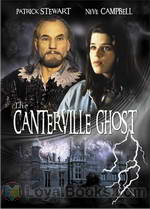 The Canterville Ghost
The Canterville Ghost
An American diplomat's family moves into an ancient stately mansion. They're warned by the owner that it is haunted by a most horrifying and gruesome spirit who had once cruelly murdered his own wife. The story progresses with creaking floor boards, mysterious passages, dark attics, clanking chains, and weird howling. Yet, the reader is totally unprepared for Oscar Wilde's brand of tongue in cheek humor as he takes all the ingredients of a traditional ghost story and turns it on its head, and creates a hilarious parody instead of a morbid saga! The Canterville Ghost was the first of Oscar Wilde's short stories to be published... | |
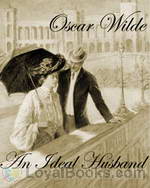 An Ideal Husband
An Ideal Husband
This story opens at a fashionable dinner party in Sir Robert Chiltern's home in the heart of London's stylish Grosvenor Square. One of Lady Chiltern's old school-friends, Mrs. Cheveley, a woman with a dubious past, accosts Sir Robert and threatens to expose a financial crime that he had once participated in, unless he agrees to finance a fraudulent construction project that she's promoting. Lady Chiltern is astounded when her husband who had been the severest critic of this project suddenly begins to speak in its favor... | |
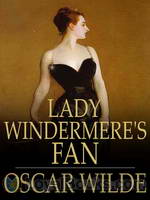 Lady Windermere's Fan
Lady Windermere's Fan
Lady Windermere’s Fan: A Play About a Good Woman is a four act comedy by Oscar Wilde, published in 1893. As in some of his other comedies, Wilde satirizes the morals of Victorian society, and attitudes between the sexes. The action centres around a fan given to Lady Windermere as a present by her husband, and the ball held that evening to celebrate her 21st birthday. | |
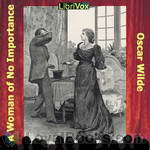 A Woman of No Importance
A Woman of No Importance
A Woman of No Importance is a play by Irish playwright Oscar Wilde. The play premièred on 19 April 1893 at London's Haymarket Theatre. It is a testimony of Wilde's wit and his brand of dark comedy. It looks in particular at English upper class society and has been reproduced on stages in Europe and North America since his death in 1900. | |
By: P. G. Wodehouse (1881-1975) | |
|---|---|
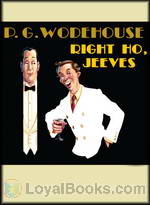 Right Ho, Jeeves
Right Ho, Jeeves
If you're encountering the zany Bertie Wooster and his exceptionally astute Man Friday, Jeeves, for the first time, be assured that you're embarking on a lifetime of fun and laughter! On the other hand, for eternal Wodehouse fans, Right Ho Jeeves provides more glimpses of the delightful world created by one of the best loved English writers. It is the second in the series of Bertie Wooster and Jeeves novels and features some of the regular characters of Brinkley Court, the country seat ruled over by Bertie's much-loved Aunt Dahlia... | |
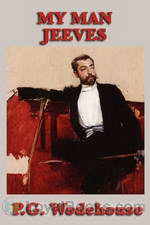 My Man Jeeves
My Man Jeeves
First published in 1919, My Man Jeeves is a collection of short stories featuring the well known fictional characters Jeeves and Bertie Wooster. The compilation consists of eight stories, of which four feature the popular duo while the other four stories feature Reggie Pepper, an early model of Bertie Wooster. Set in the early 20th century, the stories carry much humor, wit, and charming mischief as the characters seem to attract trouble wherever they go. Wodehouse sets the stories in the early 20th century and allows the audience to enter the world of the upper-class establishments, and experience the many awkward situations the characters find themselves in... | |
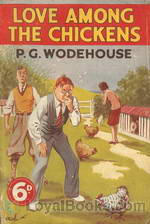 Love Among the Chickens
Love Among the Chickens
A young, but not too brilliant writer is conscripted by a ne'er-do-well friend to help out on a chicken farm in remote Dorset. While traveling to the country, the writer encounters a lovely young girl and her academician father on the train. He is delighted to discover that she is reading a copy of his latest book. In the countryside, he also discovers that the professor and his daughter are neighbors. However, over dinner one night, he gets into an acrimonious debate with the elderly scholar who storms out, furious with his daughter's potential suitor... | |
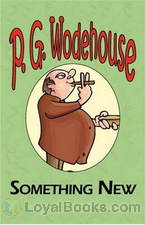 Something New
Something New
When the absent-minded Earl of Emsworth wanders off with the pride of his scarab collection, American millionaire J. Preston Peters is willing to pay $5000 to the person who can get it back for him. Discretion is necessary since Peters’ daughter is engaged to Emsworth’s son. Joan Valentine and Ashe Marson both decide to go after the reward—she as Aline Peter’s ladies maid, and he as Mr. Peter’s valet—and they all end up at Blandings Castle. But is it possible for anyone to steal back the scarab with The Efficient Baxter ever vigilant? This is, IMHO, one of Wodehouse’s funniest novels. –Debra Lynn | |
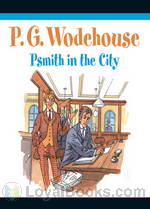 Psmith in the City
Psmith in the City
Mike’s dream of studying and playing cricket at Cambridge are thwarted as his father runs into financial difficulties. Instead, Mike takes on the job of clerk at the “New Asiatic Bank.” Luckily, school friend Psmith, with his boundless optimism and original views, soon joins his department, and together they endeavour to make the best of their new life in London. | |
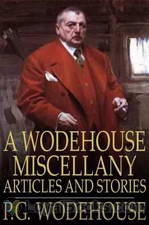 A Wodehouse Miscellany; Articles and Stories
A Wodehouse Miscellany; Articles and Stories
Sir Pelham Grenville Wodehouse was an English comic writer who enjoyed enormous popular success for more than seventy years. Best known today for the Jeeves and Blanding Castle novels and short stories, Wodehouse was also a talented playwright and lyricist who was part author and writer of fifteen plays and of 250 lyrics for some thirty musical comedies. | |
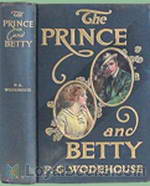 The Prince and Betty
The Prince and Betty
The Prince and Betty is a novel by P. G. Wodehouse. It was originally published in Ainslee's Magazine in the United States in January 1912, and, in a slightly different form, as a serial in Strand Magazine in the United Kingdom between February and April 1912, before being published in book form, in the UK only, by Mills & Boon, London, on 1 May that year. A substantially different version, which incorporated the plot of Psmith, Journalist, was published in the US by W. J. Watt, New York on 14 February 1912, and is the only version now widely available... | |
By: Stephen Leacock (1869-1944) | |
|---|---|
 Frenzied Fiction
Frenzied Fiction
From the cave man to Santa Claus; spies, know-it-alls, and journalists: all are fair game for Leacock’s special brand of humor. He touches on the changes time has brought about in the city, education, and work habits. Among the other topics in this work are nature, fishing, gardening, success, and spirits–both of the departed and of the variety Prohibition prohibited. Each chapter of this book is a standalone story and if you love a good laugh, these stories are for you. In me, Leacock’s wit produced the full range of laughter: smiles, chuckles, guffaws, and some uncontrollable giggles. Also, occasionally, I found myself shedding a tear or two. (Review by Debra Lynn) | |
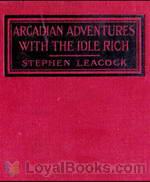 Arcadian Adventures with the Idle Rich
Arcadian Adventures with the Idle Rich
“Arcadian Adventures with the Idle Rich” is a work of humorous fiction by Stephen Leacock first published in 1914. It is the follow-up to his 1912 classic “Sunshine Sketches of a Little Town.” Like that work, it is a sequence of interlocking stories set in one town, but instead of focusing on a small Canadian town in the countryside, it is set in a major American metropolis and its characters are the upper crust of society. Although currently not as well-known as the earlier book, “Arcadian Adventures” was extremely popular in North America at the time of its publication and for a while was considered the greater success... | |
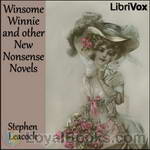 Winsome Winnie and other New Nonsense Novels
Winsome Winnie and other New Nonsense Novels
Eight silly stories by Canadian humourist Stephen Leacock. | |
By: F. Scott Fitzgerald | |
|---|---|
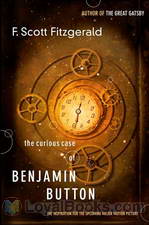 The Curious Case of Benjamin Button
The Curious Case of Benjamin Button
A life lived backwards, with events happening in reverse order forms the strange and unexpected framework of one of F Scott Fitzgerald's rare short stories. The Curious Case of Benjamin Button was published in Collier's in 1927 and the idea came to Fitzgerald apparently from a quote of Mark Twain's in which he regretted that the best part of life came at the beginning and the worst at the end. Fitzgerald's concept of using this notion and turning the normal sequence of life on its head resulted in this delightful, thought provoking fantasy tale... | |
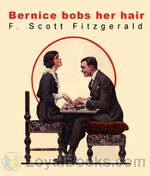 Bernice Bobs Her Hair
Bernice Bobs Her Hair
Pretty but socially clueless Bernice lets her know-it-all cousin push her around, but eventually, something's gotta give! (Introduction by BellonaTimes) | |
By: Henry James (1843-1916) | |
|---|---|
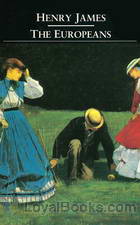 The Europeans
The Europeans
The Europeans: A sketch is a short novel by Henry James, published in 1878. It is essentially a comedy contrasting the behaviour and attitudes of two visitors from Europe with those of their relatives living in the ‘new’ world of New England. The novel first appeared as a serial in The Atlantic Monthly for July-October, 1878. James made numerous minor revisions for the first book publication. | |
By: Jerome K. Jerome (1859-1927) | |
|---|---|
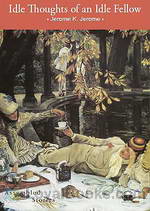 Idle Thoughts of an Idle Fellow
Idle Thoughts of an Idle Fellow
Idle Thoughts of an Idle Fellow, published in 1886, is a collection of humorous essays by Jerome K. Jerome. It was the author’s second published book and helped establish him as a leading English humorist. The book consists of 14 independent articles arranged by themes. | |
 Stage Land
Stage Land
A comic look at the curious habits and customs of the inhabitants of ‘Stage Land’. Dedicated to ‘that highly respectable but unnecessarily retiring individual, of whom we hear so much but see so little, “the earnest student of drama” | |
By: Arnold Bennett (1867-1931) | |
|---|---|
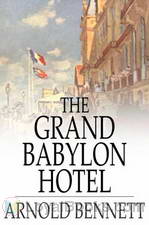 The Grand Babylon Hotel
The Grand Babylon Hotel
Theodore Racksole, a rich American multi-millionaire, buys the Grand Babylon Hotel, a luxurious hotel in London, as a whim – and then finds out there are strange things going on – a German prince is supposed to arrive but never turns up, someone is found murdered in the hotel, but then the body disappears. With the help of his independent daughter Nella and another German prince, Racksole sets out to solve the mystery.Bennett wrote this as a 15-part serial, for a lark, in 15 days, and sold it for 100 pounds. It first appeared in The Golden Penny in 1902, which described it as “the most original, amusing, and thrilling serial written in a decade”. | |
By: J. M. Barrie (1860-1937) | |
|---|---|
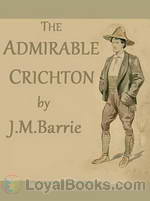 The Admirable Crichton
The Admirable Crichton
From the author of Peter Pan:Lord Loam, a British peer, considers class divisions to be artificial. He promotes his views during tea-parties where servants mingle with his aristocratic guests, to the embarrassment of all. Crichton, his butler, particularly disapproves of this.Loam, his family, a maid, and Crichton are shipwrecked on a deserted tropical island. The resourceful Crichton is the only one of the party with any practical knowledge. Eventually, social roles are reversed, and Crichton becomes the governor. | |
By: Charles Lamb | |
|---|---|
 Mr. H
Mr. H
Mr H is a farce that was first performed at Drury Lane in 1806. The plot is slender and revolves around a single rather feeble joke, but the characters are skilfully drawn and the sharp observations of contemporary fashion do much to divert the listener from the weakness of the central theme. More a comedy of manners rather than a true farce, this short play is best enjoyed as a gentle romp through the eccentricities of the Regency period. | |
By: John Galsworthy (1867-1933) | |
|---|---|
 Windows
Windows
| |
 Skin Game
Skin Game
A small play in three acts. A kind of comic tragedy. The plot tells the story of the interaction between two very different families in rural England just after the end of the First World War. Squire Hillcrist lives in the manor house where his family has lived for generations. He has a daughter, Jill, who is in her late teens; and a wife, Amy, as well as servants and retainers. He is "old money", although his finances are at a bit of low ebb. The other family is the "nouveau riche" Hornblowers,... | |
By: George Grossmith (1847-1912) | |
|---|---|
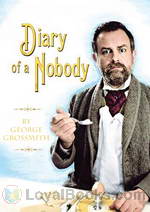 The Diary of a Nobody
The Diary of a Nobody
Grossmith’s comic novel unveils the daily chronicles of the pompous and clumsy middle-aged clerk Charles Pooter, who has just moved to the London suburb of Holloway with his wife Carrie. Nonetheless, the family’s fresh start is not quite what they had in mind. Set in the late Victorian era, the diary accurately documents the manners, customs, trends and experiences of the time. First appearing in Punch magazine through the years 1888-89, The Diary of a Nobody was first published in book form in 1892 and has entertained readers ever since... | |
By: Bill Nye | |
|---|---|
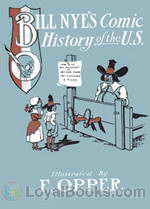 Comic History of the United States
Comic History of the United States
For American journalist and humorist Edgar Wilson Nye who wrote under the pen name Bill Nye in the late 19th century, facts are not to be presented in their newborn, bare state. They should be properly draped and embellished before they can be presented before the public. Hence, in the Comic History of the United States published in 1894, he gives his readers the facts. But in a bid to make the historical figures more human he describes them as “people who ate and possibly drank, people who were born, flourished and died, not grave tragedians posing perpetually for their photographs... | |
By: Saki (1870-1916) | |
|---|---|
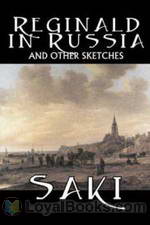 Reginald
Reginald
Saki was the pen name of the British author Hector Hugh Munro (1870 – 1916). His witty, biting and occasionally odd short stories satirised Edwardian culture. Saki is considered a master of the short story and has been compared to O. Henry and Dorothy Parker as well as Noel Coward and Oscar Wilde (who clearly influenced Saki). His first collection of short stories, Reginald, was published by Methuen Press in 1904 though these stories first appeared in the ‘Westminster Gazette’. The stories... | |
By: Sinclair Lewis (1885-1951) | |
|---|---|
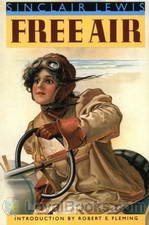 Free Air
Free Air
This road trip novel is set in the early twentieth century and follows the experiences of an aristocratic New Englander and her father as they travel by automobile from Minneapolis to Seattle. She is wooed and won by a noble but simple commoner she meets along the way. Lewis is at his usual wryly humorous self, poking fun at the upper class and treating the common people only slightly better. | |
 Our Mr. Wrenn, the Romantic Adventures of a Gentle Man
Our Mr. Wrenn, the Romantic Adventures of a Gentle Man
"At thirty-four Mr. Wrenn was the sales-entry clerk of the Souvenir Company. He was always bending over bills and columns of figures at a desk behind the stock-room. He was a meek little bachelor--a person of inconspicuous blue ready-made suits, and a small unsuccessful mustache." Mr. Wrenn, however has a rich inner life embellished by his own imagination. When he comes into a modest inheritance, he feels he ought to learn to get out and wander a bit, and then his education begins. He finds life more "interesting", perhaps than he had "imagined". . . (Introduction by Don Jenkins) | |
By: P. G. Wodehouse (1881-1975) | |
|---|---|
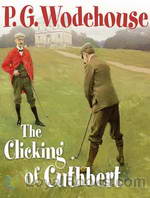 The Clicking of Cuthbert
The Clicking of Cuthbert
The first of two books that he wrote on golfing themes, The Clicking of Cuthbert by PG Wodehouse sparkles with typical Wodehousian wit, humor and general goofiness! An avid golfer himself, Wodehouse published the ten stories in this volume in 1922. In 1924, an American edition titled Golf Without Tears was published. Since then it has enjoyed undimmed popularity among both Wodehouse fans and golfing enthusiasts. Nine of the stories contained in this book are narrated by the Oldest Member, a character who has become a cult figure among Wodehouse fans... | |
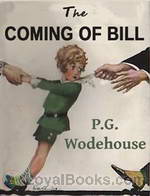 The Coming of Bill
The Coming of Bill
The Coming of Bill tells the story of Kirk Winfield, his marriage to Ruth, and their child called Bill. Bill's upbringing is threatened by the interference of Ruth's busybody writer aunt, Mrs Lora Delane Porter. | |
By: John Kendrick Bangs (1862-1922) | |
|---|---|
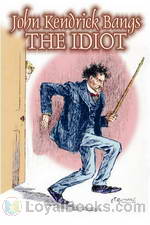 The Idiot
The Idiot
The Idiot is anything but, yet his fellow boarders at Mrs. Smithers-Pedagog’s home for single gentlemen see him as such. His brand of creative thought is dismissed as foolishness yet it continues to get under their skin, because when you’re beneath contempt you can say what you please. – This is the first of John Kendrick Bangs' “Idiot” books and was published by Harper and Brothers in 1895. | |
 The Bicyclers and Three Other Farces
The Bicyclers and Three Other Farces
| |